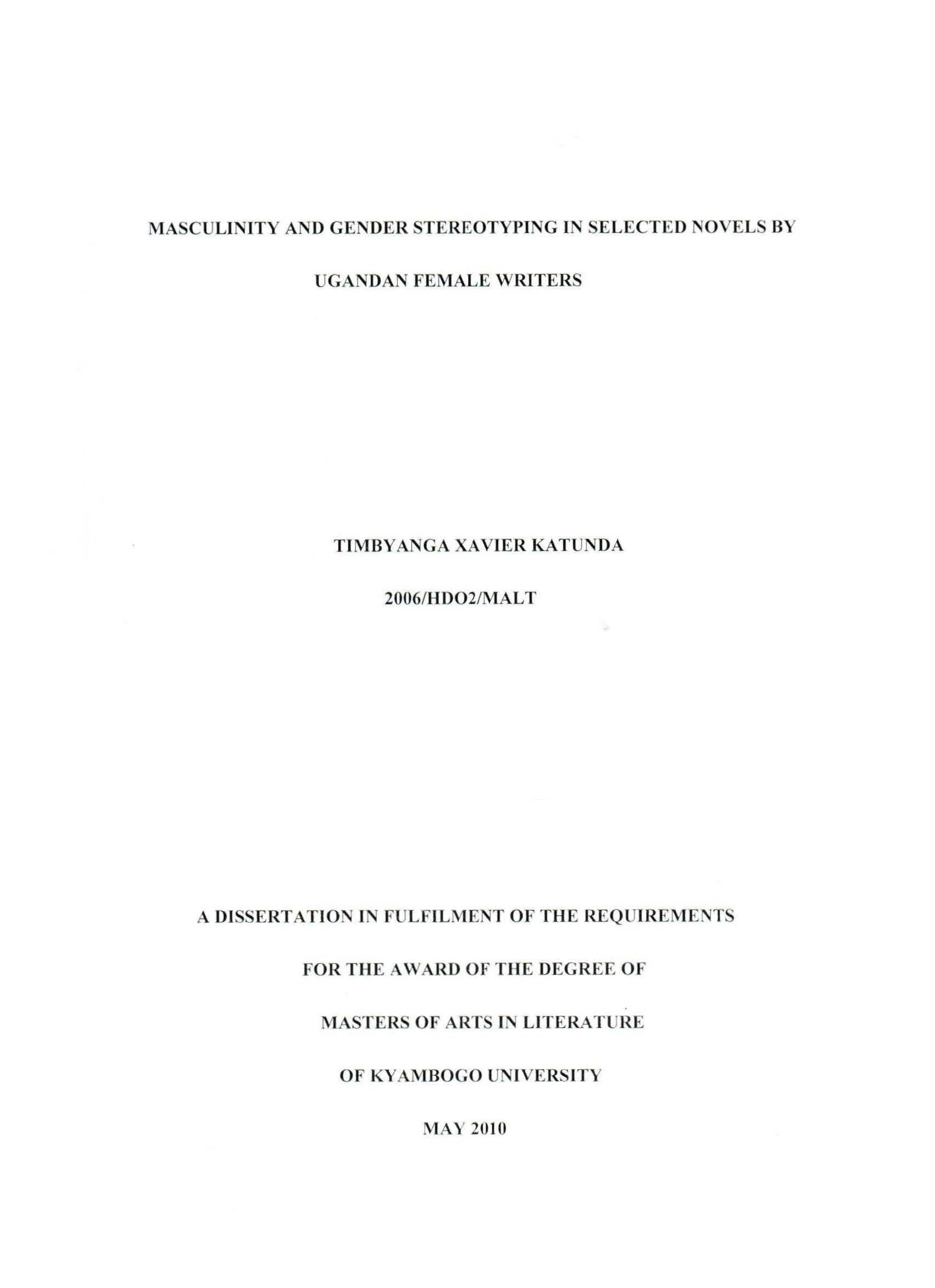Masculinity and gender stereotyping in selected novels by Ugandan female writers
Abstract
Many Ugandan women writers have asserted that although in the sixties and seventies
Uganda was producing phenomenal works of literature, "women voice were clearly
missing" (Feminist Africa). According to Mary Karooro. the absence of voices of women
"has resulted into an omission of women's experiences from the literary and cultural
heritage that shape the society" (Karooro). As a response to this gender inequality and
distortion, in the Ugandan context, Ugandan women writers resorted to the pen to rewrite
their story. Given the recent dominance of female writers on the Ugandan scene under
FEMRITE, the study attempts to examine how Ugandan female writer portra) the
desires. anxieties, perception and expectations about masculinity. Attention has been paid
on how the Ugandan women writers have tried to use their works of literature to
straighten the record in the face of some of the previous writing (by men) which had
painted the picture of an all male society" (Kiyimba 32). The research was library based
and involved analyzing selected novels of some Ugandan female writers who write under
the umbrella of FEMRITE. Barungi·s Cassandra. Kyomuhendo·s Whispers From Vera.
The First Daughter and Karooro ·s Child of A Delegute and The invisible Weelil were
used as primary sources. Other novels by these authors were used as secondary sources
alongside works of various authors. The study addresses itself to the causes and kinds of
gender stereotypes and points out both the negative and positive effects of these explicit
and implicit gender stereotypes on society. It investigates in details gender power
relations from the social. political and economic points of view in the Ugandan context.
Chapter one shows how the subordination of women has been popularized by patriarchy
through empowerment of men over women. It reveals how power imbalances in society
has led to the oppression and stereotyping of women. The chapter shows women's
argument that the oppression of women by men has been extended into their works of
literature in form of distortions of images of women. The chapter also highlights the
birth of the FEMRITE group of writers in Uganda as a response to the male dominated
literary landscape. It shows how these writers came on stage to rewrite the story of
women from the women's point of view in order to clear the image of women. It shows
how in the process of correcting the distorted image of women the image of men has also

